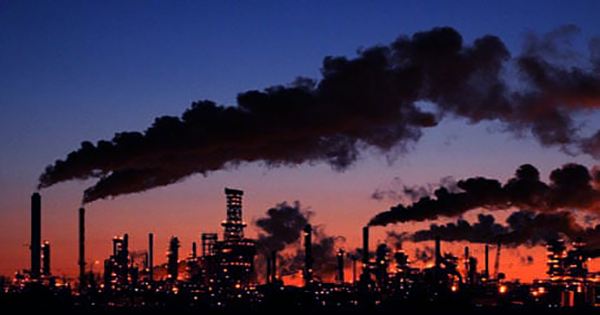According to a recent UN research, the globe will see a 2.7°C (4.8°F) rise in global temperatures by the end of the century unless world leaders significantly increase their promises at the COP26 climate change summit next week. This would be a catastrophic spike in temperature, resulting in an increase in droughts, floods, heatwaves, and coral reef destruction. The findings, published in the UN Environment Programme’s (UNEP) annual Emissions Gap Report 2021, show that current pledges fall far short of the Paris Agreement’s goal of limiting global temperatures to 1.5°C (2.7°F) above pre-industrial levels, which would mitigate some but not all of climate change’s effects. This confirms research released last month by think tank Climate Action Tracker, which found that none of the world’s biggest polluting nations are on track to reach their Paris Agreement targets.
According to the research, existing promises will only lower carbon emissions by around 7.5 percent by 2030. However, limiting global warming to 1.5°C will need a 55 percent reduction in emissions. To keep warming below 2°C (3.6°F), which is a considerably less desirable goal that would result in numerous negative consequences of climate change, 30 percent reductions in emissions would be required.
In summary, existing commitments to reduce greenhouse gas emissions made in the lead-up to COP26 are woefully inadequate, and time is running out. “Climate change is no longer an issue for the future. Inger Andersen, UNEP’s Executive Director, stated in a statement that the crisis is now. “We have eight years to practically half greenhouse gas emissions and limit global warming to 1.5°C: eight years to establish the plans, put in place the regulations, implement them, and finally accomplish the reduction.”
This warning follows the release of the current IPCC report, which found that the globe has a 50% probability of exceeding 1.5°C (2.7°F) warming over the next 20 years unless greenhouse gas emissions are reduced immediately, rapidly, and on a huge scale.
The COP26 United Nations Climate Change Conference will take place in Glasgow from October 31 to November 12, with the purpose of accelerating action toward the Paris Agreement’s goals. The current UNEP study is just another reminder that the world, particularly the G20 nations, who account for 80% of global emissions, must be more ambitious with their carbon promises. Despite the fact that 12 G20 nations have committed to a net-zero goal, their commitments are still imprecise, and it is unclear how they will meet.
If rigorous and completely implemented net-zero objectives are agreed upon and reached, global warming may be reduced by 0.5°C, bringing the expected temperature rise down to 2.2°C – which is progress, but not enough.
“As this report shows, if countries meet their 2030 NDCs [national climate plans highlighting climate actions] and net-zero commitments, which were announced by the end of September, we will be on track for global average temperature rises of just over 2°C,” said Alok Sharma, the incoming COP26 president. “Complementary estimates imply that the Paris agreements would have kept global warming below 4 degrees Celsius.” “There has been improvement,” he remarked, “but not nearly enough.” ”That is why, if we are to keep 1.5°C within reach over this key decade, we need the world’s greatest polluters, the G20 countries, to come up with greater pledges to 2030.”
















